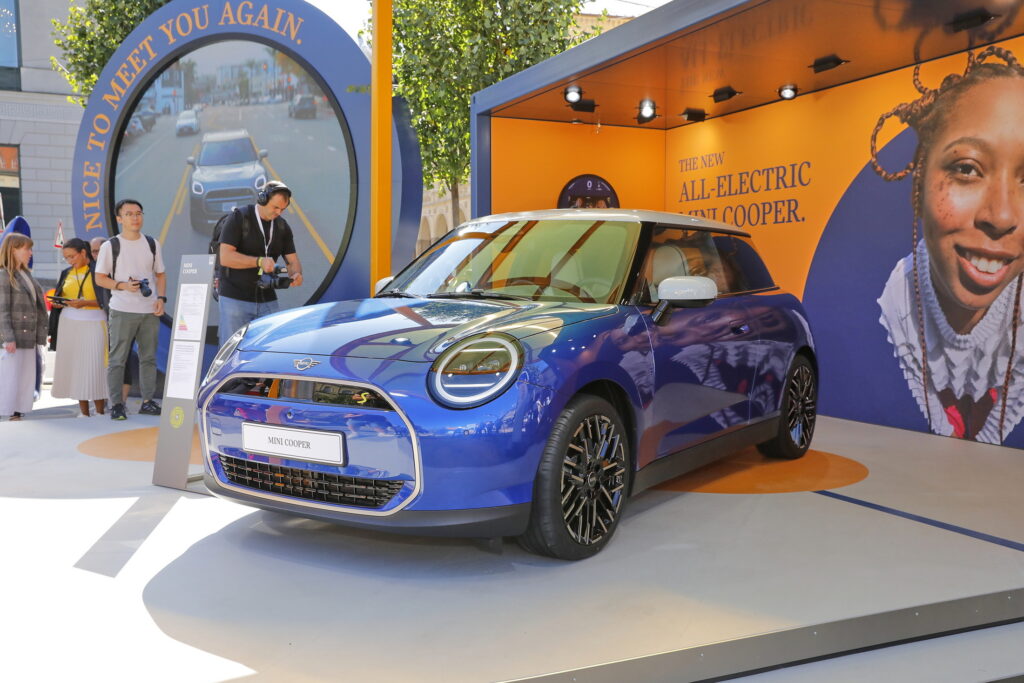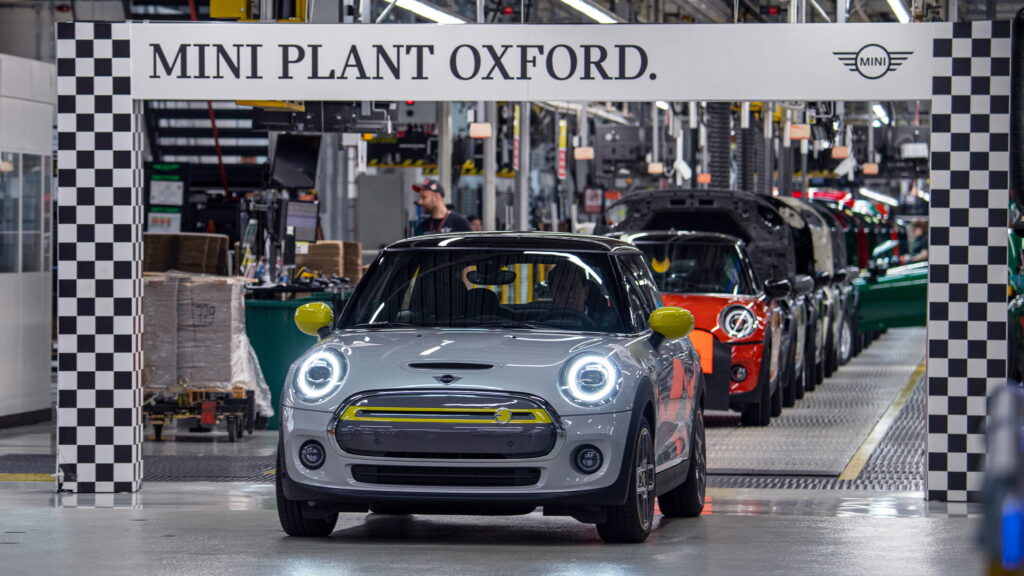The future of Mini’s U.K. plants has been secured once again, thanks to a €600 million (equivalent to US$645 million at current exchange rates) investment from the automaker, with financial support from the country’s government
As a result, Mini’s Oxford plant is set to commence production of all-electric models starting in 2026. These will include the Mini Cooper 3-Door and the all-new Mini Aceman compact crossover, with the assistance of the Swindon body-pressing facility. As early as 2024, the plant will continue to manufacture the 3-Door and 5-Door models with combustion engines. However, by 2030, it will transition entirely to all-electric production, aligning with the broader company’s strategy.
“With this new investment we will develop the Oxford plant for production of the new generation of electric Minis and set the path for purely electric car manufacturing in the future,” says Milan Nedeljković, head of production at the BMW Group, which owns Mini.
Mini previously announced that it would produce its next generation of vehicles in China, but the fate of its plants in the U.K. was unclear. The announcement is a big deal not just for the workers at these plants, but for the country, too.
Read: UK Car Production Slumps To Lowest Level Since 1956

Automotive production in Britain last year was down to its lowest level since 1956, and the Financial Times reports that in order to help ensure that the plant would remain in operation, the U.K. committed about £75 million ($94 million USD at current exchange rates) to the updates.
“This decision is a big vote of confidence in the UK economy and the work of this Government to ensure the continued strength of our world-leading automotive sector,” said Kemi Badenoch, the UK’s business and trade secretary. “We are proud to be able to support BMW Group’s investment, which will secure high-quality jobs, strengthen our supply chains and boost Britain’s economic growth.”
The news may also be important for Mini. Reports indicate that the plant will export vehicles internationally, and it may help the automaker significantly in the United States, where a 25 percent tariff on Chinese-made vehicles remains in place. This plant may help the automaker compete in the large market. Similarly, the EU and Britain plan to introduce “rules of origin” in 2024 that will require that 45 percent of the value of an electric vehicle come from the continent to avoid a tariff.
Wherever the vehicles go, Mini says that its Oxford plant will produce around 200,000 vehicles per year in the medium-term. To start, internal combustion and electric vehicles will be built on the same line until the former are removed from the lineup entirely in 2030.
“Mini has always been aware of its history – Oxford is and remains the heart of the brand,” said Stefanie Wurst, head of the Mini brand. “I am delighted that the two new, fully electric Mini models – the Mini Cooper and Mini Aceman – are also being produced in Oxford, thereby confirming our path to a fully electric future.”





